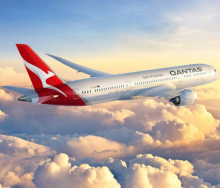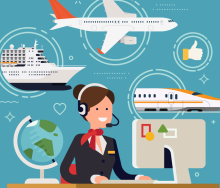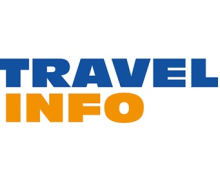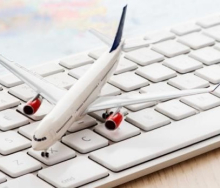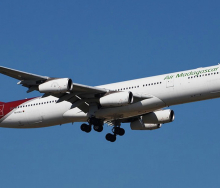March 27 marks the anniversary of the day South Africa entered lockdown. Looking back at what will long be remembered as the most difficult year for the industry, travel experts reflect and provide some insights on the way forward.
Some good things have come out of this crisis:
- The global travel fluidity and ever-changing regulations have seen many customers re-engaging with travel professionals rather than navigating bookings online.
- The industry has embraced technology, and staff have had to upskill to take on multiple new roles, resulting in less wastage of valuable resources.
- Local travellers have rediscovered the wonder of South Africa.
- The corporate travel that is trickling back has a strong focus on Africa and, for many South African travel agents, this is their area of expertise.
While bad publicity related to the discovery of the new strain of COVID in South Africa has set back many a green shoot of travel revival, the convergence of the private and public sectors working together to roll out South Africa’s vaccine programme is of the utmost importance to enable South Africans to start travelling again.
Ceo of Cruises International, Marco Cristofoli, said most travel businesses were struggling financially at this point, but the ones that had made it through the year were, for the most part, the businesses that had reacted early on, downsizing at a time when many believed that COVID would be a short-term problem.
“We were fortunate to have a lot of reserves and have managed to remain self-sufficient throughout the year without the need to take out interest-bearing loans that would put us in a more precarious financial position. We aren’t out of the woods yet, but we have learnt not to burn cash. We’ve also realised that there was substantial wastage before, and we’re at a point where we need so much less to reach a break-even point,” said Marco.
He also mused that travel professionals had all become experts in refunds this year. Refunds have been a burning issue in the industry, with agents finding themselves in the line of fire when suppliers have refused refunds and consumers have blamed agents (the most visible entities in the chain) for holding onto their funds. Marco said those companies (in every segment of the industry) who had made the decision not to hold on to clients’ funds would find themselves in good standing with those clients, with their reputations intact in the future.
“We’ve all had to embrace technology and, with downsizing, staff have needed to learn new skills that they didn’t have before. Businesses have changed the way that they track their progress, comparing month-to-month sales and expenses rather than year-to-date figures, which allows us to react immediately if additional expenses are incurred,” said Marco.
Ceo of Travelstart, Stephan Ekbergh, agreed, saying that Travelstart’s fast reaction in February 2020 had been essential for the survival of the business. “Thinking back at how devastating 9/11 was, and how small our industry’s margins are, we realised early on that we had to prepare for long-term impact. We reset our business and right-sized, and have been focusing strongly on technological development this year. We are all at the mercy of ongoing fear-mongering and restrictions on movement from world powers but travel will eventually come back in one shape or another,” said Stephan.
Ceo of 360 Degrees Travel, Ramon Geldenhuys told Travel News that he had seen a move away from online bookings and back to engagement with travel professionals who were able to assist clients in navigating the complexity of current travel regulations. Ramon said that very complexity meant that consultants were doing three times the amount of work per transaction, but they were grateful for the bookings that were coming in. He said while many large corporates still had travel freezes in place, bookings into Africa were picking up for essential industries, such as mining, as fewer travel restrictions were in place in this region. He added that while many travel companies had put remaining staff on reduced hours to cut expenses, this ultimately affected service levels and was not advisable if agencies wanted to hold on to their clients.
Vanya Lessing, ceo of Sure Travel, said travel bans implemented against South Africans had sadly put a stop to the green shoots that had been emerging toward the end of 2020.
“As things presently stand, the roll-out of the vaccine in South Africa is of utmost importance to reopening travel. We need the government and the private sector to work together to procure and distribute the vaccine as fast as possible for the survival of our industry. Without progress in this regard, South Africa will remain on the red list for many countries, which will put more travel jobs and businesses at risk.”

